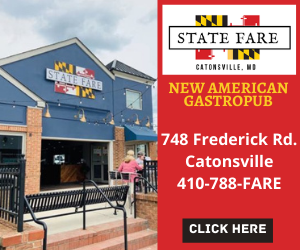survive. The doctors told us they were consulting with the leukemia academia around the planet and via the Mayo Clinic to treat her cancer because it was so unique.
In horse racing, they’d call it a trifecta. In baseball, it’d be called a Triple Crown.
For Jenn, all three were needed for survival.
Jenn would need to get to:
- Get to remission
- Find a donor somewhere in the world with her exact DNA
- Receive and survive a bone marrow transplant
Most importantly, she couldn’t get an infection or a bacteria or it could take a turn for the worse very quickly because she would spend the next six months as a human being walking the planet without an immune system. She was a bit like the boy in the bubble that I saw in a movie as a kid.
On May 11, 2014, the head of the leukemia department sought us out and told us that – to his shock and delight – Jenn was somehow in remission and that the team could move forward to find a donor to save her life.
On June 17th, Jenn was admitted for a bone marrow transplant and spiked a liver number that was deemed too high for her to have the procedure. Her transplant was called off and she was sent home. This was the toughest week of our journey when we questioned whether her donor would stay the course to keep her alive.
We’re very lucky that he’s a very special young man in Germany.
At 9:40 p.m. on June 26th, Jenn received a bone marrow transplant, which was a four-hour, dripping bag of blood that would save her life.
The first few weeks post-transplant are always the hardest and the riskiest. There are many, many risks involved in a bone marrow transplant – including rejection, graft vs. host disease and any number of fatal illnesses that claim victims in treatment. The statistics we saw said that 60% of the people would die within the first year.
As expected, Jenn was very weak in the days and weeks following her bone marrow transplant last summer, despite her procedure’s apparent early success and her lack of any of the awful side effects in the early recovery period. She was bald, emaciated, needed help to and from just about everywhere in the days after June 26th.
Three weeks later, as she was lying in bed on July 15, 2014 watching the baseball Midsummer Classic on television from Minnesota and trying to recover, she turned to me in bed and said: “Put THAT on the bucket list!”
I said, “What? The All Star Game? You’ve never asked me to go to an All Star Game!”
To be fair, we usually vacation at the end of July because it’s the week of our anniversary and the final week before the Ravens and NFL season get percolating again. I’ve been to 14 MLB All Star Games in my journalism career over the years – most before I was married to Jenn. I didn’t realize that she had never been to one. And she’d never feigned any real interest.
Honestly, this seemed like such a simple request and it’s not like Jenn was constantly adding items to the “bucket list.” She was honestly far more concerned with taking any of her 50 pills per day on the right schedule, with her mobile phone constantly buzzing with reminder alarms from apps that kept her alive. She also had softball-sized bottles of medicines and antibiotics that needed to be attached to the port in her chest to keep her alive in the overnights when she came home.
Getting her to the All Star Game in the future would be quite easy. Surviving the bone marrow transplant was the hard part.
While watching the game that night from Target Field in Minneapolis, I googled where the game would be held in 2015 and saw that Cincinnati would be the host of the MLB All Star Game. I immediately threw a text to Bengals head coach Marvin Lewis – the only person I know in Cincinnati – and told him that making it to his town for the All Star Game would be our goal in July 2015. He told me to bring it on and get Jenn better and he’d join us.
During the initial six weeks she spent in the hospital in the spring, we talked about all kinds of things we wanted to do when she got better. By the way, we ALWAYS said “when” – never “if” – when referring to the rest of her life. She discovered on the first night of her leukemia battle that her blood type was B positive so we took that as our mantra very early on in the battle.
Be positive. This is a bag of her blood.
We even started hashtagging our posts with #BmorePositive. And we live in Baltimore – or B-more – and many folks started using it for some inspiration for Jenn in her battle.
After she brought up going to a baseball game as part of her “recovery bucket list,” I had remembered our original “bucket list” exercise from March and my notes made back in the summer of 1994 during that original firewalk weekend. That original list from the Tony Robbins seminar guided my life and my

































